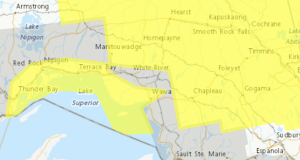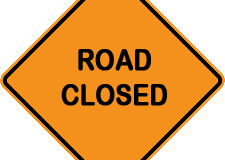NFTP 190809
I would hazard a guess that, next to access to clean air, the need for water is the most important need people around the world have. It is of the most basic of all human needs – even above food. The average person, depending on their geographic, economic and other circumstances, requires between 20 to 50 litres of safe water each day for drinking, cooking, sanitation and just keeping themselves clean.
You would think that human access to water would be incredibly simple when you consider that 71 percent of Earth’s surface is covered in water. When you think about it, with only about one quarter of the world remaining as land, it’s amazing we have enough surface land to support a world population of 7.7 billion people. But even if we take the focus off of the global scale and look solely at the Province of Ontario, we have more than 250 000 lakes which, when combined, accounts for a full 20 percent of the entire world’s supply of fresh water. That’s amazing!
Over the years I’ve enjoyed several opportunities to fly in small private aircraft across Ontario’s Northern regions. Such planes fly at much lower levels than commercial passenger planes and give you an excellent view of what really is all around us. No matter how many times I have been on such flights I marvel at just how much water surrounds the communities of Algoma-Manitoulin. And don’t forget that this riding includes Manitoulin Island which is recognized as the largest freshwater island in the world. The bottom line – water is plentiful in Ontario – especially the North.
Taking all of the above into consideration, how is it that access to good drinking water can be a problem anywhere in this province? And yet, it is a huge problem that has lingered for decadesright here at home. Sol Mamakwa, MPP for Kiiwetinoong, is the NDP critic for Indigenous Relations and Reconciliation. Mamakwa says that the Neskantaga First Nation in his Northern Ontario riding has been under a boil-water advisory since February 1, 1995. That’s over 20 years! In fact, as of today, there are 13 First Nations communities in his riding alone with boil-water advisories. According to an article by Adrian Sutherland in the August 2,2019 edition of the Huffington Post, “There are 50 boil water advisories in Indigenous communities.” And by the way, that list does noteven include communities like Attawapiskat where even boiling the water could not make it safe.
Recently NDP leader Andrea Horwath completed a tour of Northern Ontario First Nations, meeting with many Indigenous leaders and community members. While there she said, “Imagine being part of an entire generation in your community – growing up as kids, maturing through adolescence, becoming adults, and entering parenthood yourself – all while never knowingwhat it’s like to drink the water from your tap.” This is indeed a reality for thousands of Indigenous families.
In Attawapiskat Andrea met with a woman named Jackie whose granddaughter was born with a severe heart defect. Thankfully her granddaughter is now home with a clean bill of health, but Jackie still lives with fear because of the water in her community. For Jackie, doing something as simple as bathing her granddaughter is dangerous because the water is so full of chemicals that it creates toxic fumes in the shower.
We live in one of the wealthiest regions of the world by comparison. So how can such a situation be allowed to exist? Consider for a moment how much emphasis the Ford Government put into pushing buck-a-beer campaign. Think of the priority that Ford made in changing Ontario’s liquor laws such as extending hours when alcohol can be ordered, allowing ‘happy hour’, and putting beer and wine into corner stores. Clearly Doug Ford makes accessing beer a much higher priority than making sure all Ontarians can access clean safe drinking water.
In March of this year, Sol Mamakwa’s Bill 76, the United Nations Declaration on the Rights of Indigenous Peoples Act (UNDRIP) passed second reading in the Legislature. If passed the bill would recognize and enshrine the basic fundamental human rights and freedoms of Indigenous peoples in law. This would improve the quality of life for Indigenous peoples by ensuring access to basic services, like clean water, health care, education, and housing.
In concluding her trip to Northern Ontario Indigenous communities, Andrea Horwath said, “Reconciliation is notrole-playing. It’s acknowledging the wrongs that were done through colonialism, and the wrongs that continue to be done, and it is taking concrete action to do much, much better.” Her advice to Doug Ford is to put aside politics and take immediate action to resolve the decades old problem of access to clean, potable water. “Ontario can and must fix the water in these communities immediately, and send the bill to Ottawa. Clean water is a basic human right, and if Ontario is serious about Reconciliation, then acting now to clean up the water is what Reconciliation looks like.”
Enough is enough. There is no more time for excuses. Thousands of people, including young children, are being deprived of a basic human right. It’s past time to end the political posturing. ALLpeople need water to live, grow and thrive. Let’s get the job done now and get it done right.
As always, please feel free to contact my office about these issues, or any other provincial matters. You can reach my constituency office by email at [email protected]or by phone at 705-461-9710 or Toll free 1-800-831-1899.
- MPP Mantha seeks update on Northern Health Travel Grant - November 27, 2024
- Fixing the housing crisis is not easy work, but it’sa job we can’t afford to put off any longer - June 17, 2024
- Résoudre la crise du logement n’est pas un travailfacile, mais c’est un travail que nous ne pouvonspas nous permettre de reporter plus longtemps - June 17, 2024
 Wawa-news.com Local and Regional News
Wawa-news.com Local and Regional News

